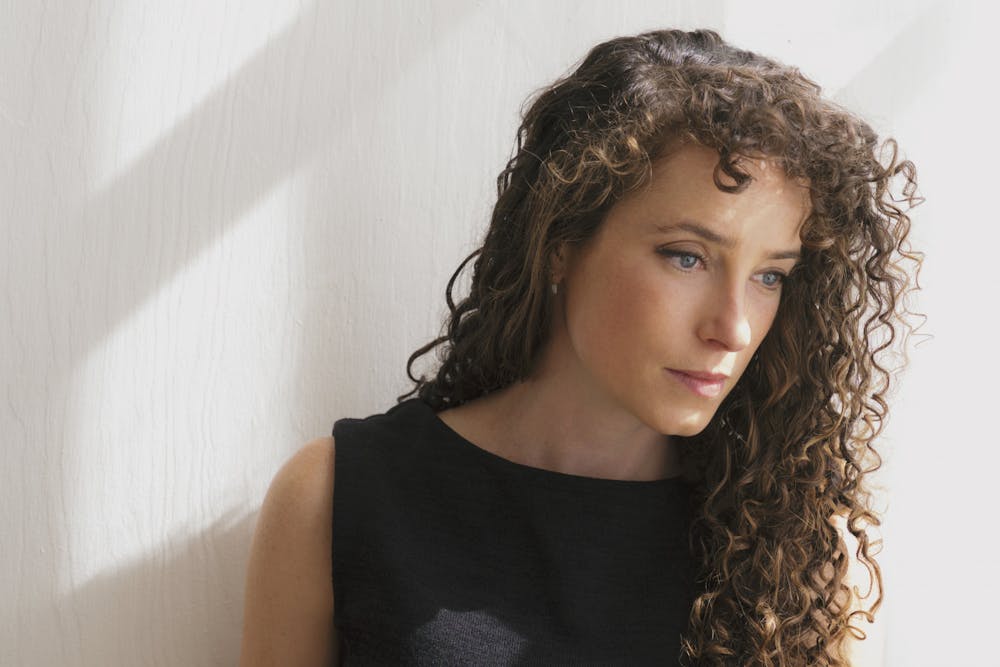Poet Rose McLarney is this spring's Writer-In-Residence, part of the Ferrol A. Sams Jr. Distinguished Chair of English, an annual program wherein Mercer's English department brings an accomplished poet, playwright or fiction writer to lead a seminar class and host public readings.
Every Tuesday evening, McLarney makes the hour-and-a-half commute to Mercer where her students gather in Willingham for an advanced poetry workshop.
McLarney is the author of three poetry collections and the co-editor of "A Literary Field Guide to Southern Appalachia." She has taught creative writing classes at Auburn University for over six years.
McLarney grew up in the mountains of Western North Carolina outside of Asheville. As an only child, she was homeschooled off and on, and her mother would often give her assignments to encourage her progress in writing.
“I should have always known that I wanted to be a writer,” McLarney said.
She loved taking creative writing classes as an undergraduate but didn’t choose to major in it because she thought there were other things she was supposed to be pursuing instead. After college, when she was establishing a career in another field, she realized she was still writing regularly and receiving positive feedback for her work. She decided to go back to get her MFA at Warren Wilson and became a “full-time” poet.
“If you know you want to be a writer, and you're in college, and you can take all the classes and you can major in it, why not do it?” McLarney said.
Now as a writing professor, she said it is easy for her to structure her life around creating. She established a routine by setting aside time to write every morning before she has checked her email or started working on assignments. When things are busy, she says she has to be defensive about her writing time and the boundaries she sets.
“You know what, if the house is not on fire, then let's talk about it after 2 p.m.,” she said.
McLarney finds writing poems to be both a rewarding and manageable task.
“Selfishly, it gives me some purpose,” she said. “Poetry is the thing that I have the ability to do, and so it's what I have to offer the world.”
Growing up, her parents also emphasized a love of place and the outdoors. Her father is an aquatic biologist, and he discovered the land her parents still live on today while boating down the river.
“They chose their lives based on a place and then figured it out from there,” McLarney said. This piece of land is the space that has inspired the majority of her poems.
A sense of place and engagement with the natural world is a major theme in her newest poetry book, "Forage." "Forage" is partially written in reaction to McLarney’s experience with moving to many different places and trying to fall in love with these spaces through poems while remembering the original place she grew up.
While McLarney’s previous collections were based more on a culmination of experiences throughout her life, "Forage" ventures into new territory.
“My most recent book, 'Forage,' is honestly the one that I'm proudest of right now, at least, because it's the one that I feel I pushed myself hardest,” McLarney said.
Many of McLarney’s poems ask questions. She interrogates her own tendency to be sentimental and nostalgic and our collective inability to save things and hold onto those we love.
“We're always messing things up and letting people go that maybe we shouldn't have, or should have expressed something to before they were gone,” she said.
McLarney’s current collection, tentatively titled "Color Fast," dives deeper into these questions of time lost. The book begins by thinking about her mother, those who were growing older and those who she had lost. Ultimately, McLarney decided she didn’t want to wait until people were already gone to write them elegies.
Her next collection also elegizes stories from her girlhood and omissions from Appalachian cultural history. It is set to be published in 2024.
Eliza Moore ‘24 is an English and Journalism student at Mercer University. She is now in her second year working as The Cluster’s News Editor after a semester abroad. She is currently producing work for Macon Magazine and Georgia Public Broadcasting in addition to her work with The Cluster. She loves breakfasts, the ocean, and all things related to writing.





